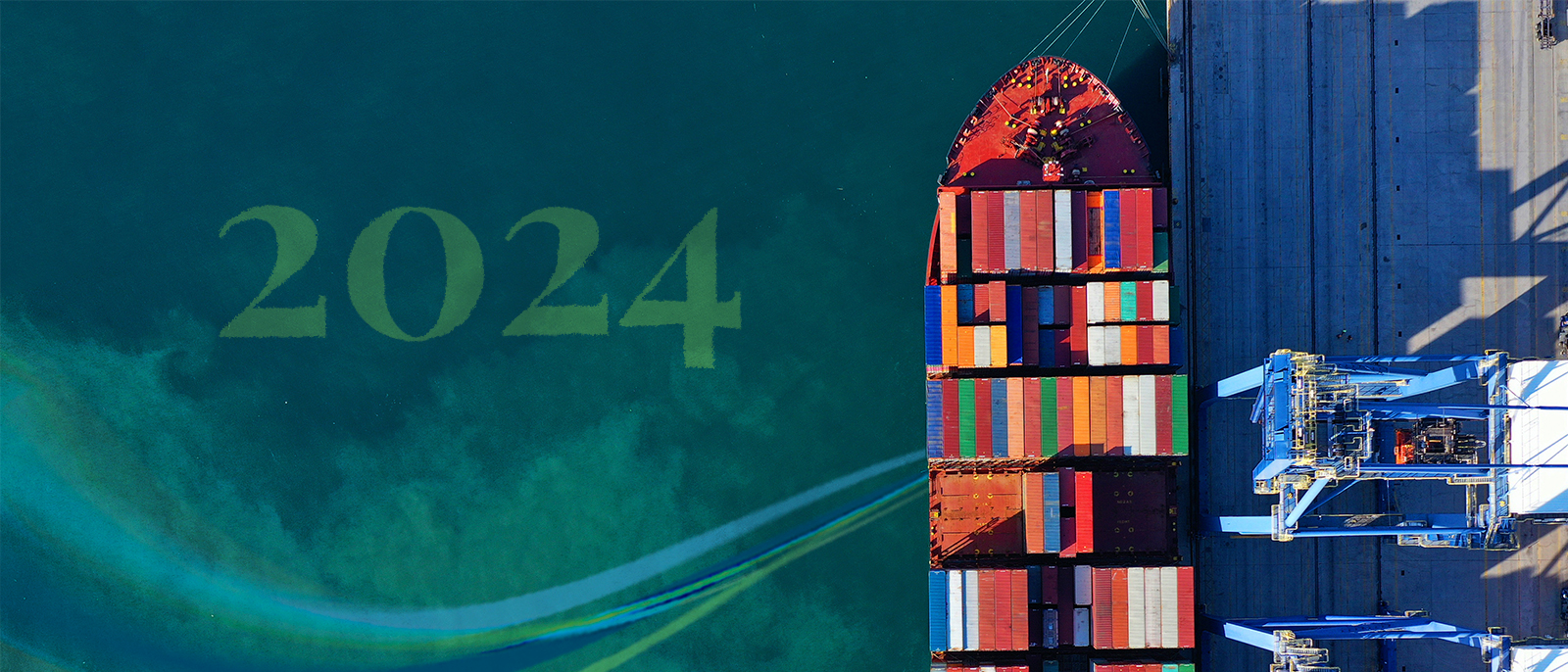The freight shipping industry is poised for significant transformation in 2024, driven by advancements in technology, increased environmental awareness, and evolving customer expectations. Here are the key trends to watch this year:
Digitalisation and Automation
Blockchain Technology: Blockchain is enhancing transparency and security in the supply chain. It allows for immutable record-keeping of shipments, reducing fraud and improving traceability.
IoT and Smart Sensors: Internet of Things (IoT) devices and smart sensors are being used to monitor cargo in real-time. These technologies provide valuable data on temperature, humidity, and location, helping to ensure the safety and integrity of goods.
Automated Freight Management Systems: Advanced software solutions are streamlining logistics operations. Automated systems can optimize routes, manage inventories, and predict delivery times more accurately, improving overall efficiency.
Sustainability and Green Shipping
Alternative Fuels: The shift towards greener fuels like LNG (liquefied natural gas), hydrogen, and biofuels is gaining momentum. These alternatives reduce greenhouse gas emissions and comply with stricter environmental regulations.
Energy-Efficient Vessels: New ship designs and retrofits are focusing on energy efficiency. Innovations such as air lubrication systems, wind-assisted propulsion, and hull modifications are contributing to lower fuel consumption.
Carbon Offsetting: Companies are increasingly investing in carbon offset programs to neutralise their carbon footprint. This practice is becoming a standard part of corporate sustainability strategies.
Autonomous and Electric Vehicles
Autonomous Ships: While fully autonomous ships are still in the testing phase, 2024 is expected to see significant advancements. These vessels promise safer and more efficient operations, with reduced human error and operational costs.
Electric Trucks: The rise of electric trucks for last-mile delivery is a major trend. Electric vehicles (EVs) offer lower operating costs and contribute to emission reduction goals, making them an attractive option for freight companies.
Enhanced Supply Chain Resilience
Diversified Sourcing: Companies are diversifying their sourcing strategies to mitigate risks associated with geopolitical tensions, natural disasters, and pandemics. Multi-sourcing from different regions helps ensure continuity of supply.
Robust Risk Management: Advanced analytics and AI are being used to predict and manage risks more effectively. By analysing historical data and identifying patterns, companies can better prepare for disruptions.
Customer-Centric Innovations
Improved Tracking and Visibility: Enhanced tracking technologies provide customers with real-time updates on their shipments. This transparency builds trust and improves customer satisfaction.
Flexible Delivery Options: Consumers are demanding more flexibility in delivery options, including same-day and time-definite deliveries. Freight companies are adapting by offering more personalized services.
Regulatory Changes and Compliance
Stricter Emission Regulations: Governments worldwide are implementing stricter emission regulations to combat climate change. Freight companies must stay ahead by adopting cleaner technologies and practices.
Cybersecurity Measures: With increased digitalization, cybersecurity is a critical concern. Companies are investing in robust cybersecurity measures to protect their data and systems from cyber threats.
Conclusion
The freight shipping industry is at the cusp of a technological and environmental revolution. Embracing these trends will not only enhance operational efficiency and customer satisfaction but also contribute to a more sustainable and resilient global supply chain. As we move through 2024, staying informed and adaptable will be key for businesses to thrive in this dynamic landscape.
Please contact us for advice or further information or help visit our website.
